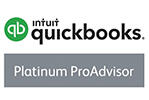Government to close business rates loophole
Many second home owners use a loophole to avoid council tax on the property. However, the government has announced that new rules will apply to prevent abuse from April next year. What’s going on?

Under the current system, owners of second properties in England can avoid a council tax bill if there is an intention to let the property to holiday makers. This brings the property into the business rates regime and, as a result, small businesses rates relief can be claimed. The problem is that many second home owners are declaring an intention to let their property, when in reality they just remain empty for most of the time.
From April 2023, the rules will change so that only genuine holiday lettings will qualify for the relief, bringing non-qualifying properties back into the charge to council tax. A property will only be assessed under the business rates regime if the owner can provide evidence that:
- it will be available for letting commercially, as self-catering accommodation, for short periods totalling at least 140 days in the coming year;
- during the previous year, it was available for letting commercially, as self-catering accommodation, for short periods totalling at least 140 days; and
- during the previous year, it was actually let commercially, as self-catering accommodation, for short periods totalling at least 70 days.
Related Topics
-
CT61
-
Repayment thresholds for student finance confirmed
Repaying student finance can seem complicated, with a number of different plan types each having different repayment thresholds. The thresholds for the forthcoming year have just been confirmed. What’s the full story?
-
Advance assurance pilot confirmed
There have been a number of changes to how research and development tax credits are claimed in recent years. HMRC has now confirmed that a pilot of a new clearance procedure will begin later this year. What do we know so far?



 This website uses both its own and third-party cookies to analyze our services and navigation on our website in order to improve its contents (analytical purposes: measure visits and sources of web traffic). The legal basis is the consent of the user, except in the case of basic cookies, which are essential to navigate this website.
This website uses both its own and third-party cookies to analyze our services and navigation on our website in order to improve its contents (analytical purposes: measure visits and sources of web traffic). The legal basis is the consent of the user, except in the case of basic cookies, which are essential to navigate this website.